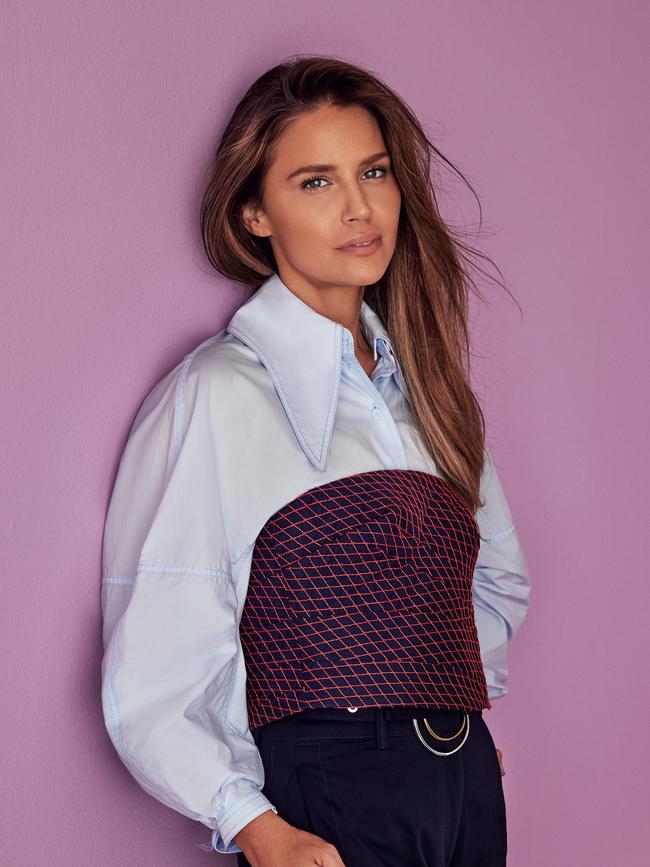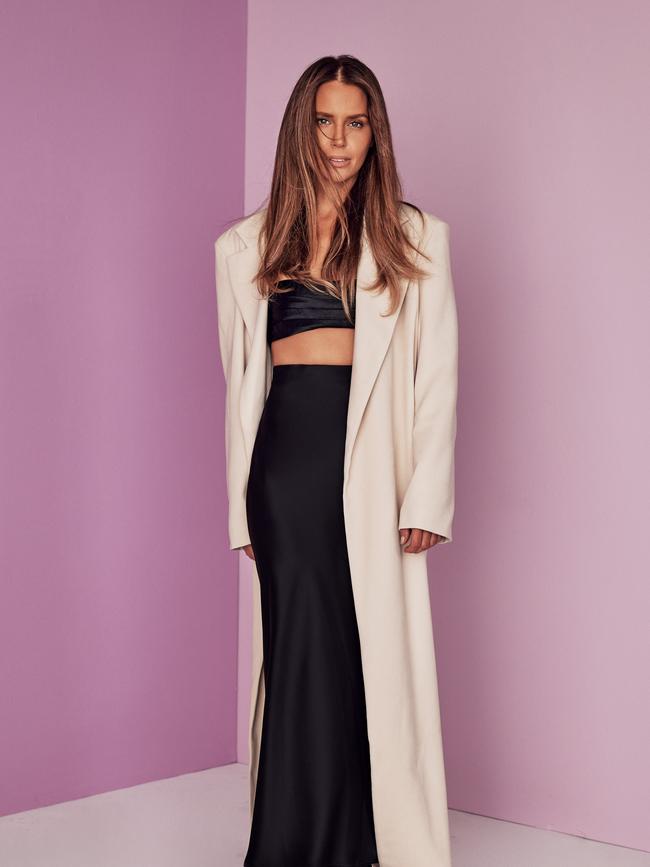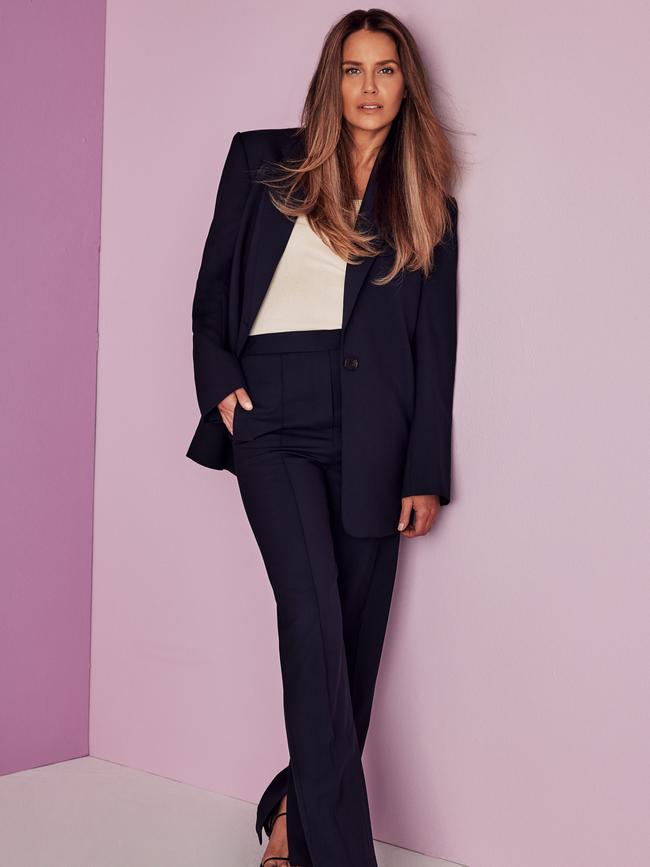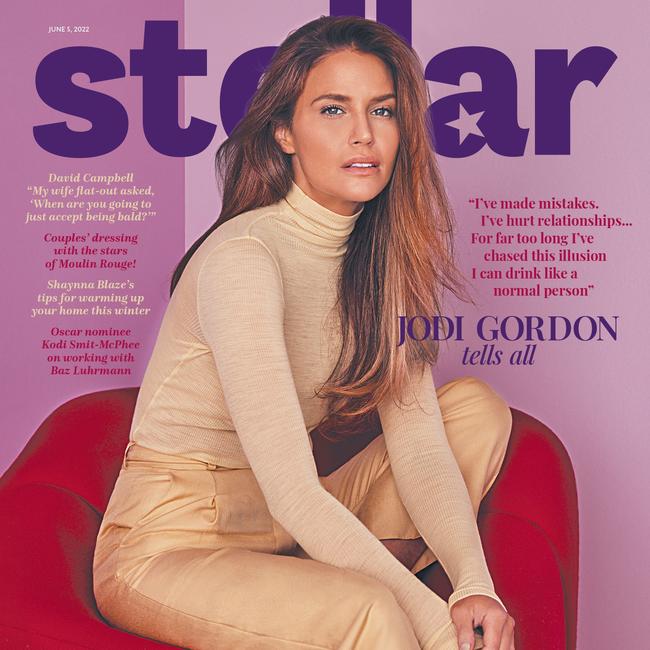‘Alcohol is my poison’: Jodi Gordon tells all
After a long stint in rehab for alcoholism and depression, Neighbours actor Jodi Gordon reveals the “dark places” she found herself in as she battled to cope with soapie stardom and how she’s fighting to turn her life around.
Stellar
Don't miss out on the headlines from Stellar. Followed categories will be added to My News.
Throughout her acting career, the storylines in Jodi Gordon’s private life have played out almost as dramatically as those of the complicated soap characters she’s portrayed on our screens. But behind her megawatt smile and seemingly glamorous trappings, Gordon has long battled demons, which culminated in a 30-day stint in a rehab facility last month. In a raw and exclusive interview with Stellar, the 37-year-old opens up for the first time about when she knew she needed help and why she’s so determined to pull herself out of the “dark well” she’s been inhabiting for too long.
You’ve just completed a 30-day stay in rehab. What was that experience like for you and what have you learnt from it?
Jodi Gordon: There were no smiles at the start of those 30 days. To find yourself in a place where you have multiple people making the decision for you that you have to admit yourself into a rehab, that’s not a place where you’re smiling.
But doing that kind of work [on myself in rehab], I’ve never, ever gone to those emotional depths and dealt with such unprocessed trauma and pain [before]. It was incredibly scary and painful at times.
But like they say, you step into those dark places and I think when you’re in the middle of it and you’re being held by such a strong community of like-minded people with similar problems, there’s something incredibly powerful about being in that kind of space.
I learnt so much through connection but also through the tools that you gain in how to start to deal with that pain, that trauma, how to break it down, coping mechanisms. And how, once you exit that rehab facility, to start implementing those tools into your life and restructure and build a bigger, better life.
How are you feeling right now?
JG: I feel like I’ve been given a second shot at life both internally and externally in terms
of a new path, a new chapter. I know that’s all clichéd talk, but when you dive deep into the dark problems that you have, when you can come out the other end of that, I think there’s freedom and liberation in that. I feel like second chances are on the table.
There’s also a sense of empowerment within yourself when you step into your fears, that it’s not so scary after all, when you’ve been hiding from it for so long. And I guess the result of doing that work is that I feel so much joy today and so much hope. I feel like I’m on the right track.

Was it your decision to go to rehab or did your friends and family encourage you?
JG: I’d been in this really dark place of depression on and off over the years. But the place that I was in before I went into rehab was a really dark place.
It’s a place where I was so far down this well – which is what I call it – that it’s really hard to think, to hear, to see any form of light or to be able to connect with anyone, let alone to reach out or talk to anyone.
So for me to hear that someone is worried about me or to hear that someone is telling me to go to rehab or that I need help, that just sounded like white noise. I don’t know how, but someone, somewhere finally got through to me. And then I became so desperate for help because I didn’t want to live in that space anymore.
I let someone help me make that choice and I booked myself in... begrudgingly, but within a couple of days, I knew I was right where I belonged.
Could you shed some light on what led you to admit yourself into rehab?
JG: Alcohol is definitely my poison. I’ve chased this illusion that I can drink like a normal person for far too long. It got really bad when I was doing Neighbours [Gordon played teacher Elly Conway from 2016 to 2020].
It was the commuting, the stress of travelling... In my industry, I think there’s a lot of keeping up with appearances. I was trying to present something beyond [what] I could pretend to control, trying to do my best, but just sinking... feeling like I was a small girl in a big world.
I think I got to a point where the depression really started to sink in. I spiralled into a place of really negative thoughts within myself. I call it [my] “depression place”. I write a lot of poetry around this place and I call it “a dark place lit so brightly with black”.
And it’s a horrible place to be – it’s intoxicating and all-consuming. And I guess my coping mechanism for that place was to throw a blanket over it; pretend it didn’t exist [with] alcohol.
But alcohol is a depressant. So when you try to treat depression with a depressant, it’s like adding fuel to the fire.
[Alcohol] disguises itself in these fabulous ways to me… It looks fancy, it looks fun. It’s not. It’s a pattern of destruction – and I don’t use that word lightly – but it ends up on this downward spiral and I end up in the same place... When you take the alcohol away, you can actually look at what’s going on.
Did having your admission to rehab made public via paparazzi shots affect you?
Once I found out the media knew, I did not leave those four walls for four weeks. It was like cabin fever, but by me doing that, I felt like I was protecting my story.
What I felt in that moment when they had jumped over the fence and taken pictures and commented on the way I looked or the fact that I was getting help, it really upset me because what I wanted to do was actually come out of there and talk about my experience in the hope that my story would resonate with someone, [and they would] reach out and have a conversation and not suffer the way I did.
That can be a life-and-death situation and that’s why I’m having this conversation [with Stellar]. If you want to have an opinion because of the things I’ve done wrong, fair enough. I’ve made mistakes, I’ve hurt relationships, and they are things I’m trying to mend.
And do I feel shame and guilt about those? Absolutely. They are things that will take time, but I don’t think that having an opinion or degrading someone for trying to get help or trying to be better and improve their life is fair.

There were widespread reports of an alleged physical altercation between you and your former partner Sebastian Blackler in April, which resulted in apprehended domestic violence orders being taken out against both of you (the pair ultimately consented to two-year, non-contact orders). Is there anything you’d like to clear up about the events of that day?
JG: Out of respect and privacy for that relationship, I won’t be commenting on that relationship. And that matter was dealt with before [the] court.
Domestic violence has been a much spoken-about topic in media and politics lately. Do you have any thoughts on how it should be addressed?
JG: I love that it’s coming to a head and I love that so many more women are having a voice around it and that we can support each other in that movement as well. I think it’s absolutely imperative that together women can stand and have a voice around it and that something is done.
Is your mental health something you’ve always had to work on or something that you’ve chosen to concentrate on more recently?
JG: I started seeing a therapist when my partner [Christopher Burkhardt, who had acute myeloid leukaemia] died when I was 22. So it has always been a huge part of my life.
Sometimes [therapy is through] a counsellor, sometimes it’s a community group or program work, or sometimes it’s a big group of girlfriends. Also sometimes, I don’t have $300 to spend that week [on therapy] and that’s the truth of it. It can be really expensive. That’s a lot of money.
But that’s what I love about this day and age – there are a lot of different places that people can go to get help. Some cost money, some don’t. There’s a whole range of different help out there for everyone.
Your romances often make headlines. Have you reflected on why so many of your relationships have been troubled?
JG: There’s been a lot of reflection on relationships romantically and relationships of all kinds. I’ve had some of the greatest loves of my life and there’s good and bad in everything.
There’s a lot of internal work that I had to do to break down a lot of that. It’s difficult to talk about that because I really want to remain respectful to their privacy and to any relationship I’ve been in. I just want to wish everyone peace and happiness to move forward, and any of the work that I’ve done internally, I stand alone in doing that work. I take accountability.

How will you talk through some of what has been written about you with Aleeia, your eight-year-old daughter with your ex-husband Braith Anasta? Have you done this already?
We have a really special, beautiful bond and a very emotional bond. She’s at that age
where she’s like this little woman. She’s taking everything in. There’s nothing that doesn’t
go unnoticed. It’s really beautiful to spend time with her.
Braith and [his fiancée] Rachael [Lee], they do so much for Aleeia. I’m very grateful for them. She’s so lucky. She’s got so much family everywhere. She’s got a lot of love in her life.
I have had a conversation with her, as much as you can with a little girl. She knew I was going away and we had a really beautiful conversation when I came back, and she was happy to see me present and happy and doing really well.
I’m very aware of the fact that she will probably read this, so I keep that in my heart with every word that I use. I guess I have the hope that, God forbid, one day if she’s going through something dark, she can read this and know that she doesn’t need to feel alone and she can feel some small bit of hope that she can have a conversation with her mum, or her father or nanna or whoever it is, and start the process of talking about it.
What are you looking forward to most in this next chapter of your life?
JG: I guess the opportunity to rebuild a little bit internally and externally... I’m filming Neighbours. I got the scripts the other day and it’s really emotional. To be part of this show that has been on television for so long and to be part of those final episodes is such an honour, it truly is. It’s a nice ending to that part of my life; it feels like I’m closing the chapter.
I have a few things coming up over the next few months that I’m excited about, so just work, and spending time with friends, family and Aleeia. Doing little, simple things in life that now mean more to me than ever.
What would you like to say to those who have judged you from afar?
JG: I guess that it’s nice to be able to tell the truth from my own lips. And I think there’s power in having a conversation and talking.
I feel like this [interview] is the first step of me living my truth, and it feels really freeing to be open about who I am and the journey I’ve been on.
If those headlines have led me to having the opportunity to tell this story, and someone picks up the phone and it helps them out, then I feel so grateful for those headlines –because it’s given me this platform to try to make a difference.

If you or someone you know is in crisis and needs help, call Lifeline on 13 11 14 or Beyond Blue on 1300 224 636.
Originally published as ‘Alcohol is my poison’: Jodi Gordon tells all



